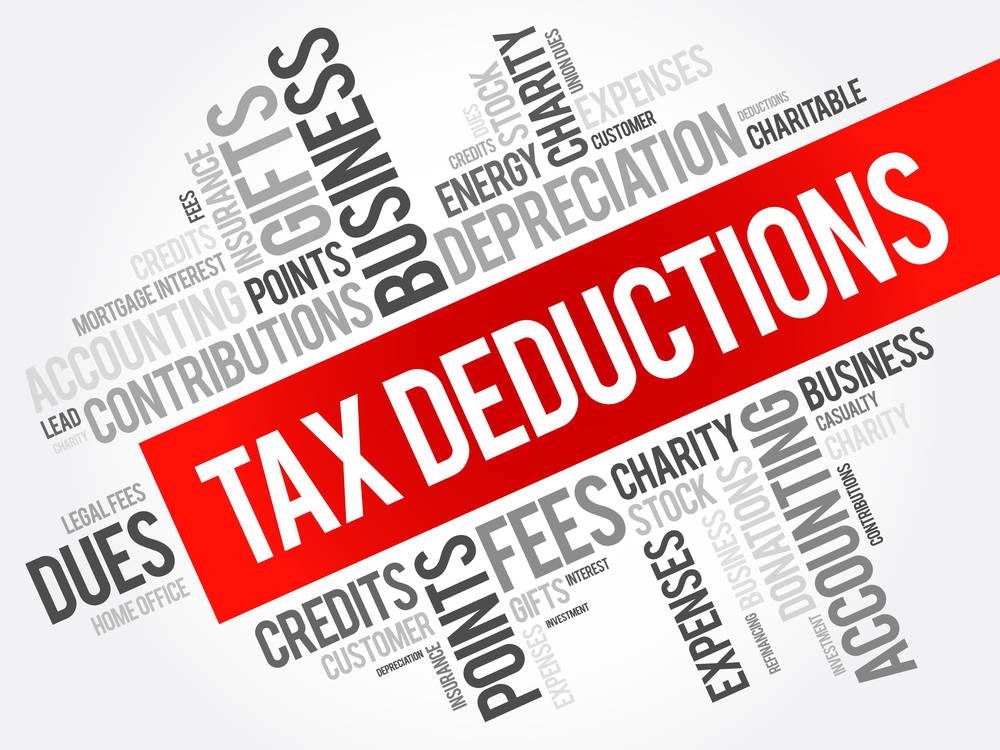Key Takeaways:
- Understanding the difference between tax credits and deductions.
- Effective use of tax software can aid in maximizing deductions and refunds.
- Learning common filing errors to avoid and deadlines to adhere to.
- The importance of staying updated with tax laws to ensure compliance.
Understanding Tax Deductions: What Can and Can’t Be Deducted
Tax deductions can be complex and varied, and understanding them is crucial to reducing taxable income. Itemized deductions are a detailed list of expenses that can be deducted, including mortgage interest payments and medical expenses exceeding a certain income threshold. It is essential to maintain detailed accounts to capitalize on these deduction opportunities. However, some expenditures may not qualify under IRS stipulations, and it is necessary to distinguish between personal and business expenses, as the IRS does not allow personal expenses as business write-offs.
The Role of Tax Software in Simplifying the Filing Process
The evolution of tax software, such as TaxSlayertaxslayer.com, has significantly changed how individuals file their taxes. With the help of this software, people can take charge of the process with more independence and fewer mistakes. These programs are designed to guide users throughout the entire tax-filing journey. They can import W-2 forms automatically and identify potential tax savings, acting as a personal tax advisor. Moreover, these platforms offer a direct e-filing facility with the IRS, simplifying the submission process and leading to faster refunds. The main goal of these tax assistance tools is to provide accessibility and help users quickly complete the complex task of tax filing.
Maximizing Your Tax Refund: Practical Tips
Maximizing your tax refund commences well before the tax documents are aligned on your desk. It begins with year-round diligence in maintaining impeccable records of receipts, expenses, and financial documents. Accurate reporting of income, donations, and every deductible expense is the foundation of maximizing your tax refund. Leveraging the stratagem of timing certain costs—such as squeezing in an extra mortgage payment within the tax year or front-loading charitable donations—can substantially influence tax obligations. Additionally, making savvy decisions about taxable income can also play a part; for instance, deferring bonuses or other income to the next tax year when possible can manage tax brackets more advantageously.
Avoiding Common Tax-Filing Errors
Filing taxes can be tricky; even a minor error can lead to unwanted headaches, such as refund delays or IRS audits. Common mistakes include:
- Misspelling names.
- Providing incorrect bank account details for direct deposits.
- Making errors in math calculations.
One of the most frequent yet lesser-known errors involves erroneous income reporting from the gig economy or other freelance work, which can cause significant discrepancies. To avoid such mistakes, it is crucial to double-check every entry on your tax return. Additionally, it’s a good idea to maintain a critical eye, with the help of tax software, to safeguard against inaccuracies and their repercussions.
How to Stay Updated With Tax Laws and Regulations
In the financial universe, few things evolve as steadily as tax laws. Every year ushers in a host of adjustments for rates, deductions, exclusions, and credits. With the tax code’s dynamic nature, keeping abreast of these changes is essential. Authoritative resources like the Internal Revenue Service (IRS) provide a wealth of current tax laws and guidelines information. This consistent engagement with up-to-date information preserves your ability to make informed decisions and ensures compliance with changing tax rules. In such an ever-shifting landscape, the adept taxpayer proactively seeks out knowledge and integrates it into their fiscal strategy.
Deadlines and Extensions: Managing Your Time Wisely
Procrastination can be the worst enemy of a taxpayer. As tax deadlines approach, it becomes increasingly important to have an action plan for timely submission. Remembering to keep a close eye on important dates, such as when W-2s should arrive, when contributions to retirement accounts must be made, or when quarterly estimated taxes are due, is a core component of managing taxation effectively. In certain circumstances, an extension for filing a return can be requested, providing additional time to gather necessary documentation. Although it’s worth noting that extensions to file are not extensions to pay, taxes owed are still due on the original due date. Understanding these nuances will prevent last-minute scrambles and potential penalties for late filing and payment.
Tax Credits vs. Tax Deductions: Leveraging Both for Your Benefit
Discerning taxpayers recognize the mutually beneficial roles of credits and deductions. Whereas deductions reduce the amount of income subject to tax, credits grant a dollar-for-dollar reduction in tax liability and can sometimes even exceed your tax obligation, resulting in a refund. In some cases, education-related expenses can yield tax credits, while mortgage interest serves as a deduction. The tax landscape offers a range of credits, such as the American Opportunity Tax Credit for education expenses or the Child and Dependent Care Credit. Understanding the breadth and interaction of these mechanisms is critical to minimizing overall tax liability while maximizing potential refunds.
Self-Employment and Taxes: A Guide for Freelancers and Contractors
Self-employment presents a unique set of tax considerations that demand a thorough grasp of applicable laws and procedures. Freelancers and contractors must adeptly navigate quarterly estimated tax payments, meticulously track business expenses, and fully understand their eligibility for deductions, such as the home office deduction. Income from freelancing must also be accurately reported, and self-employment tax—accounting for Medicare and Social Security—must be calculated with precision. Failure to comply can lead to audits or penalties. As such, it behooves the self-employed to dive deep into the relevant tax code or seek professionals who can provide guidance tailored to their situation.
Planning for Next Year: How to Better Prepare for Tax Season
As the current tax season ends, shifting your focus toward the next one is essential. To stay ahead of the game, it’s recommended that you take proactive measures by implementing organized systems to track expenditures and receipts related to taxes. Knowing in advance which receipts to save and keeping them neatly archived can save you hours of frantic searching come next tax season. It’s also crucial to understand how changes in your life, such as a new job or a new home, will impact your tax situation. This knowledge will allow you to make informed decisions throughout the year, which will ultimately help you to optimize your returns. By practicing mindfulness in financial matters year-round, you can adeptly maneuver through tax preparation, mitigate stress, and increase your chances of getting the most out of your returns.


